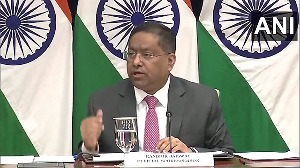Dream11, Baazi Games, Zupee and WinZO among others are invited for the discussion with the anti-money laundering watchdog.

The Financial Action Task Force (FATF), the global anti-money laundering watchdog, has invited Indian online gaming firms to discuss money laundering and terror financing risks associated with operations of such companies and offshore entities.
The discussion, which is part of a wider industry consultation, has been scheduled for Friday, according to two sources with knowledge of the matter.
This is the first time the anti-money laundering watchdog has invited gaming firms to have a discussion in this regard.
FATF Director Smarak Swain will chair the discussion, according to an invitation reviewed by Business Standard.
Indian gaming and real-money gaming firms such as Dream11, Baazi Games, Zupee, and WinZO, among others, are among those invited for the discussion.
The items on the agenda include an overview of money laundering and terror financing risks associated with online gaming, regulatory landscape and FATF standards, and an open discussion on industry challenges.
"Companies may discuss potential challenges posed by money laundering to the sector and ways to curb them. This may also bring out an understanding of how customers can be protected from offshore betting and gambling firms that may also be laundering money," one of the sources said, requesting anonymity.
FATF is an inter-governmental body which sets international standards to prevent money laundering, and combat terror financing. India became a part of the body in 2010.
Online gaming is defined as the offering of a game on the Internet or an electronic network, which also includes online money gaming.
The latest discussion assumes significance as India has been advocating for the inclusion of online gaming companies under the anti-money laundering or countering the financing of terrorism (AML/CFT) framework to combat such risks.
This comes after India's Enforcement Directorate investigated a network of illegal betting services operated by Mahadev Online Book in 2023.
The company was accused of money laundering through cryptocurrencies, and match-fixing, among other offences.
The same year, the finance ministry amended the goods and services tax (GST) law, requiring gaming companies to charge 28 per cent GST on full value of bets.
Offshore platforms too were required to have a GST registration to operate in India.
The amendment required blocking access to online gaming platforms located overseas in case of failure to comply with registration and tax payment provisions.
The meeting with online gaming firms comes at a time when the sector is facing threat from money laundering risks, according to a Digital India Foundation (DIF) report.
There are certain measures to contain such risks, which include creation of a dedicated task force for illegal operators, a whitelist of legal operators, and combating misleading advertisements.
The illegal betting market in India receives upwards of $100 billion per annum in deposits, according to the DIF report.
India has a community of over 568 million gamers.
The sector grew at a compound annual growth rate (CAGR) of 28 per cent between 2019-2020 (FY20) and 2022-2023 (FY23), and is expected to generate $7.5 billion in revenue in the next five years.
Feature Presentation: Ashish Narsale/Rediff.com











 © 2025
© 2025